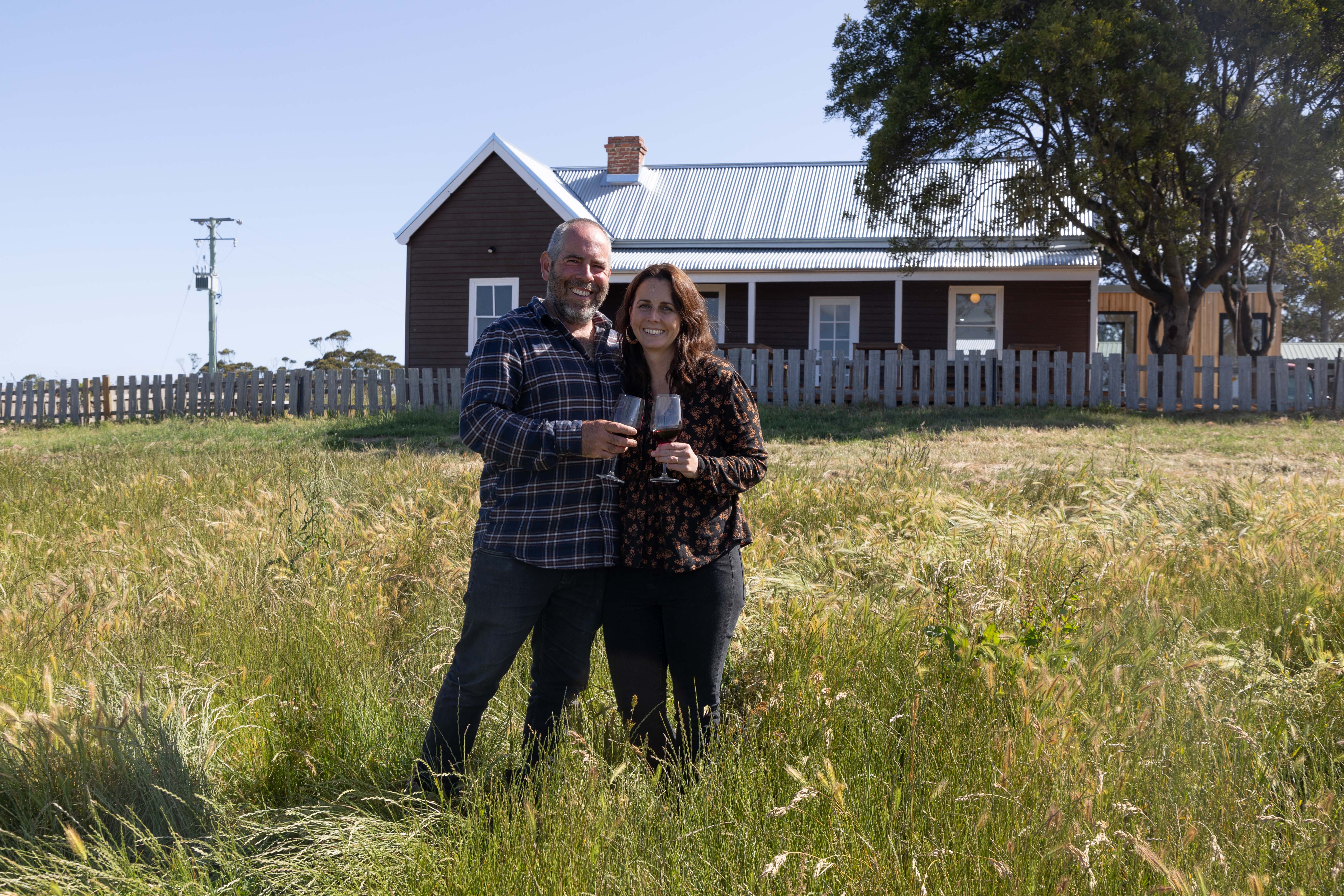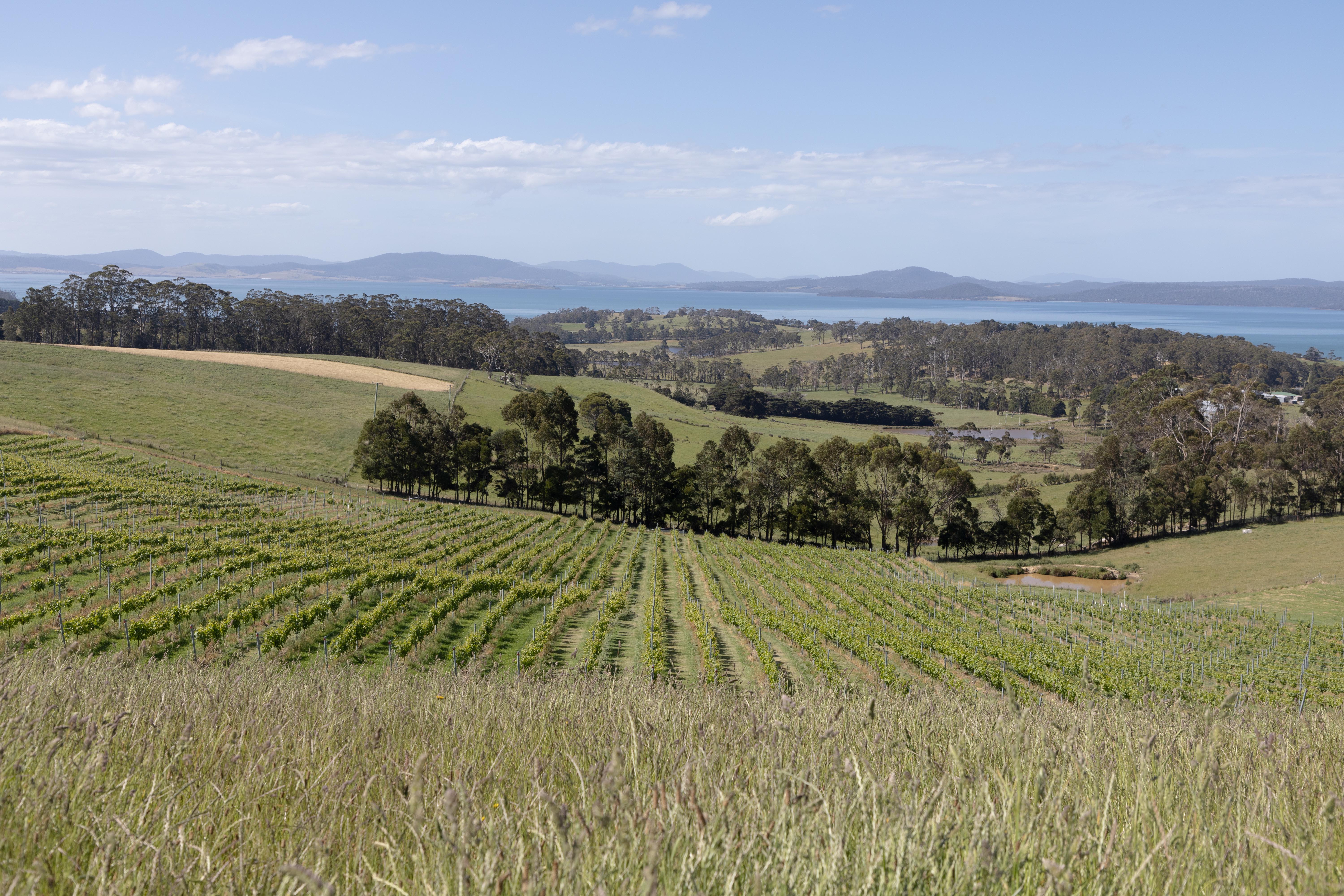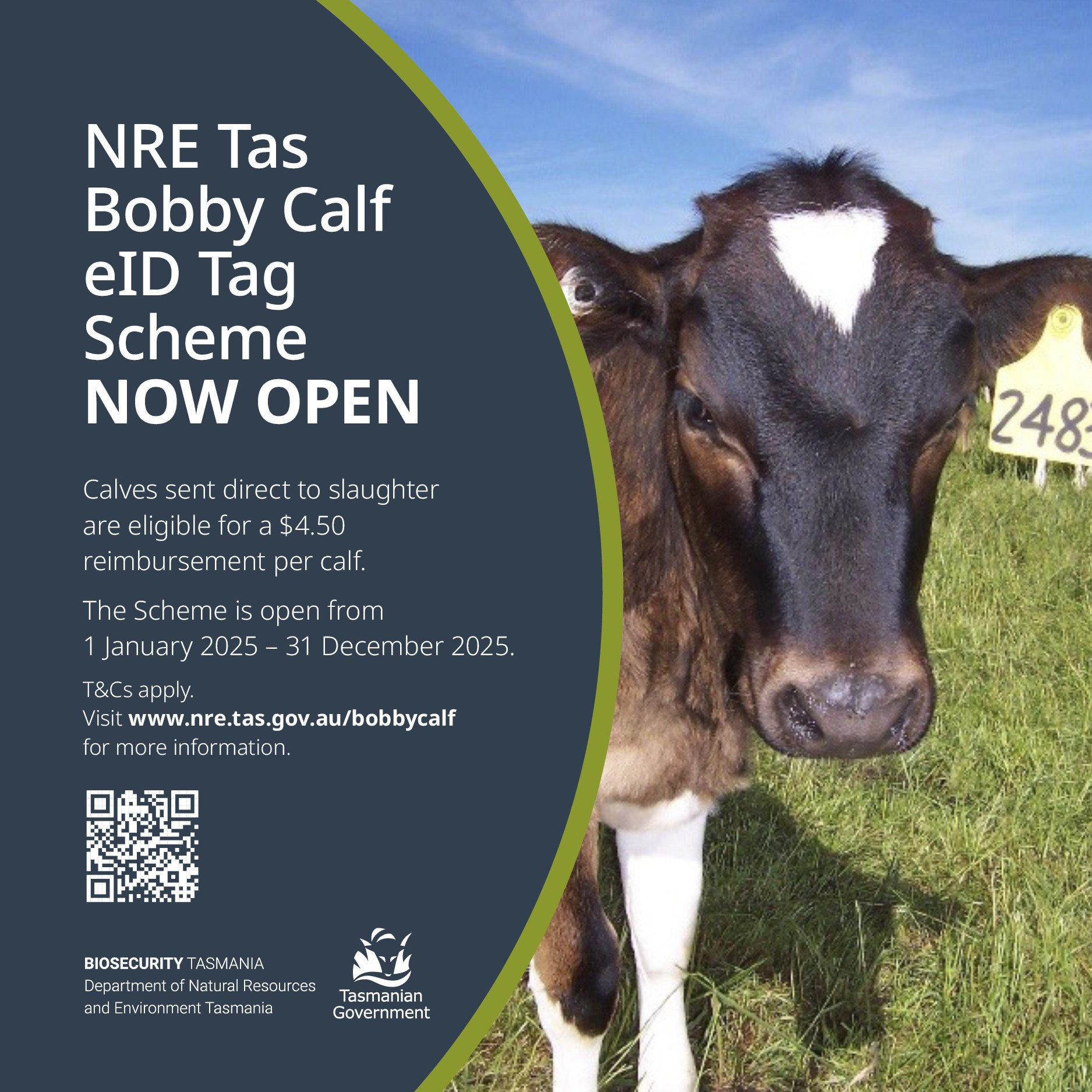Premaydena Hill: where premium beef meets fine wine
PREMAYDENA Hill has evolved from a traditional cattle farm into a popular winery and cellar door, offering a unique combination of premium Black Angus beef and locally crafted wine.
Owned and operated by Ella and Daniel Kelleher, and set among the rolling hills of the Tasman Peninsula, the property has become a hot spot for tourists traveling through the area.
With the farm’s history as a cattle farm spanning over 150 years, Daniel, who was seeking a more practical change after years in the corporate world, purchased Premaydena Hill in 2014.
Soon he and his wife Ella worked on diversifying the property and building a business together.
Both Ella and Daniel come from scientific backgrounds that have shaped their approach to agriculture.
Ella, who studied biotechnology and worked in medical research, made the most of her knowledge of plant science when she transitioned into viticulture.
She also completed a certificate II in viticulture and immersed herself in learning on the job.
Daniel's experience in corporate for health safety and environment exposed him to countless discussions on climate change and sustainable practices which fuelled his interest in farming.
Since it was a cattle farm originally, the couple continued to run cattle and while building up the herd while also running flocks of sheep and experimenting with garlic.
“We tried all different things but in the end, it was the beef and the wine we wanted to focus on,” Daniel said.
Today, Premaydena Hill operates as a relatively small cattle farm, raising around 100 Black Angus cows and producing approximately 100 yearlings each year.
Given the farm’s location in a tourist hotspot—where approximately 400,000 people visit Port Arthur annually—venturing into winemaking felt like a natural next step.
“It just made sense to grow grapes here and process the fruit for our cellar door,” Daniel said, highlighting that it’s a very vertically integrated model.
In 2018, the Kelleher’s planted their first vines, laying the foundation for their winery.
They originally planted 6,500 vines, including varieties such as Pinot Noir, Chardonnay, Pinot Gris, Shiraz, and Pinot Meunier.
During the time leading up to their first vintage they built a wine processing facility and worked on building the cellar door and restaurant/café.

Interestingly, the Kelleher’s have adopted a unique approach to viticulture: they do not irrigate their vines.
“We’re one of the only agricultural areas in Tasmania that doesn’t have an irrigation scheme or a proposed irrigation scheme,” Daniel shared.
Instead, they follow a French system.
“In France, it’s illegal to irrigate so we copy that model,” he said.
“We get lower yields, but we get a more intense fruit with a thicker skin and that’s where all the flavour is.”
Daniel says they don’t crop as high in terms of tonnage as other vineyards that irrigate but they create a sustainable product.
“It was a lot of work to get established because 2018 and 2019 were very dry but that has helped us develop more resilient crops,” Ella said.
“We had to hand water the vines when they were small so they could stay alive long enough to get established, and because they were on minimal water it really encouraged them to put their roots down deep into the soil which now means that when we have periods of dry, they’re a lot more resilient,” she said.
In December 2023, the Kelleher’s opened their cellar door, inviting visitors to experience their wines firsthand.
Their response from the community was overwhelmingly positive.
The couple worked tirelessly during the first few months and Ella recalled they didn’t take a single day off for around 90 days.
The couple is dedicated to building a sustainable model, where everything from growing to processing to selling occurs on their property, resulting in low carbon miles for their products.
“When you buy a bottle of wine here and then put it in your car and drive away that’s the first time it’s left the property, everything’s happened here.” Ella said.
Alongside the winery, the Kelleher’s process their Black Angus beef locally, supplying restaurants and households in the area while even hand-delivering to their local customers.
“We go around, meet the customers, share a few recipes and have a chat.
“It's nice when you're the person that's been there when a calf is born, and then you follow them through their entire life, right through to the end product, where you've put it on someone's kitchen bench,” Ella said.
“It's a much more sustainable system when people are utilising the whole animal, as opposed to just going to the supermarket and getting their T bones or getting their Scotch fillet, and then what happens to the rest of the animal?"
"When people buy a whole side, they get to understand that actually, there's a lot of really versatile cuts in the rest of the animal, and they can eat in a way that's a bit more interesting, but also much more sustainable.” Ella said.
“It also gives people that confidence in what they're buying and the traceability aspect.”
Ella says that this way people who are ordering know what the cows are eating and how they’ve been treated.
“If you're buying off a retail outlet, and there's seven different steps in the chain finding that information is really difficult.”
Daniel said he finds Black Angus beef to be a great breed with good genetics and good intramuscular marbling that sells well in the market.
“I think the consumer understands it too, when they go into a restaurant, they're buying Black Angus Beef, a premium product.”
They now breed their own bulls and cows and after nearly 10 years, they’ve had that time to be selective, retaining only the best.”
Ella and Daniel actively engage with the local agricultural community, participating in Landcare initiatives and expressed gratitude for the people they have learning from over the years.
Looking ahead, the Kelleher’s are focused on strengthening what they do and expanding their wine production capacity.
Since they have built a processing facility designed for double their current output (30 tonnes) Daniel shared aspirations to process up to 50 tonnes in the near future.
“We have capacity for other smaller vineyards in the region to bring their fruit here, and have it processed by us as well,” he said.
Last week the couple even launched a distribution business and have started distributing their wines to local cafes, restaurants, and bottle shops.
“No two days are the same and especially since we’ve diversified this much,” Ella said.
For visitors, a trip to Premaydena Hill offers more than just wine and beef and Daniel says one of the greatest things is seeing people’s faces the first time they arrive at the cellar door and see the view of rolling green hills.
Overall, Ella shared how satisfying it has been to achieve what they've have in a short space of time.
“Now it's just about consolidating where we're at, building our team so that we can get to the point where we can still do this and have a life.”
“We love this place, being able to show it to people, and to be able to share the beef and the wine, we're really passionate about it.”





Add new comment